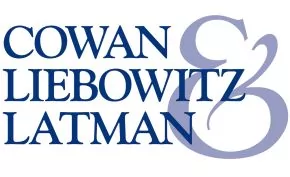- with readers working within the Technology industries
The Trademark Modernization Act of 2020 affords an excusable nonuse defense against an attempt to cancel a U.S. trademark registration that is more than three years old for a mark never used in U.S. commerce. The Trademark Trial and Appeal Board (TTAB) issued its first decision about this particular defense in the context of a U.S. registration based upon a foreign registration.

The 2018 U.S. registration of DESPACITO for tequila and other alcoholic beverages was based on a prior Mexican registration for the same mark. During the first three years of the U.S registration, Registrant failed to export any DESPACITO products to the U.S.
A California company filed a U.S. intent to use application for the identical mark DESPACITO for the same goods. The Trademark Examiner refused this application based on a likelihood of confusion with the pre-existing registration.
Following the ITU application's refusal, Applicant then petitioned the TTAB to cancel the blocking registration on the ground that Registrant had not used the registered mark in U.S. commerce during the first three years of the registration term. Applicant also pleaded that Registrant had abandoned the registered mark without any intention to make such use.
Registrant claimed excusable nonuse because supply chain disruptions in Mexico during the COVID-19 pandemic prevented the production, bottling, labeling, and packaging of Registrant's DESPACITO tequila.
The legislative history of the Trademark Modernization Act of 2020 specifically stated that "the circumstances that satisfy excusable nonuse are limited and must be due to special circumstances beyond the registrant's control (e.g, trade embargo, fire or other catastrophe)." The TTAB noted that the concept of excusable nonuse in earlier cases had been applied in other abandonment and registration maintenance contexts when the temporary nonuse was beyond the control of the registrant and forced by outside causes. We previously discussed such cases in "How to Preserve U.S. Rights in a Registered Trademark that is Not in Use."
There was no dispute that Registrant had not used the DESPACITO mark in commerce on any of the goods listed in the registration for more than three years. Registrant only began to export such goods to the U.S. after the Applicant filed its cancellation petition.
The TTAB observed that the COVID-19 pandemic was exactly the type of catastrophe that qualified as an excusable nonuse special circumstance. This conclusion was based on common sense, dictionary definitions, relevant court decisions in other contexts, and the Trademark Office's own policy changes.
The TTAB found that Registrant's nonuse in this case was due to the special circumstances of the COVID-19 pandemic. To avoid cancellation Registrant "must provide sufficient facts connecting the special circumstances of the pandemic to specific events or conditions experienced by Respondent that precluded use of the mark."
Testimony established that government restrictions, business closures, and supply chain disruptions and shortages caused by COVID-19 made Registrant unable to manufacture, bottle, or label its proposed DESPACITO tequila, despite its agreements with several companies essential to the production and export of its products. These agreements had been made well within the three-year period after registration.
Applicant claimed that the nonuse merely resulted from Registrant's own inaction. Applicant argued that Registrant had not provided any corroborative documentary evidence, such as business, production, or marketing plans. Also, Registrant had not secured the required Mexican certification to use the term "Tequila," nor had it even applied for the U.S. Certificate of Label Approval, until after the cancellation petition's filing date.
The TTAB determined that the lack of documentary evidence was not fatal in this case because the testimonial evidence provided a reasonable and credible explanation for the mark's nonuse. Further, as to the abandonment claim, although Registrant's use after the filing of the cancellation petition did not negate the claim that the mark had never been used before the cancellation petition's filing date, it suggested an intent to commence use after the temporary conditions precluding use subsided. Registrant, in fact, had followed through with such use.
Accordingly, the TTAB denied the petition to cancel the registration on both grounds.
JT Spirits, LLC v. Global Brands Mfg., S.A. de C.V., Cancellation No. 92079052 (July 18, 2025).
The content of this article is intended to provide a general guide to the subject matter. Specialist advice should be sought about your specific circumstances.


